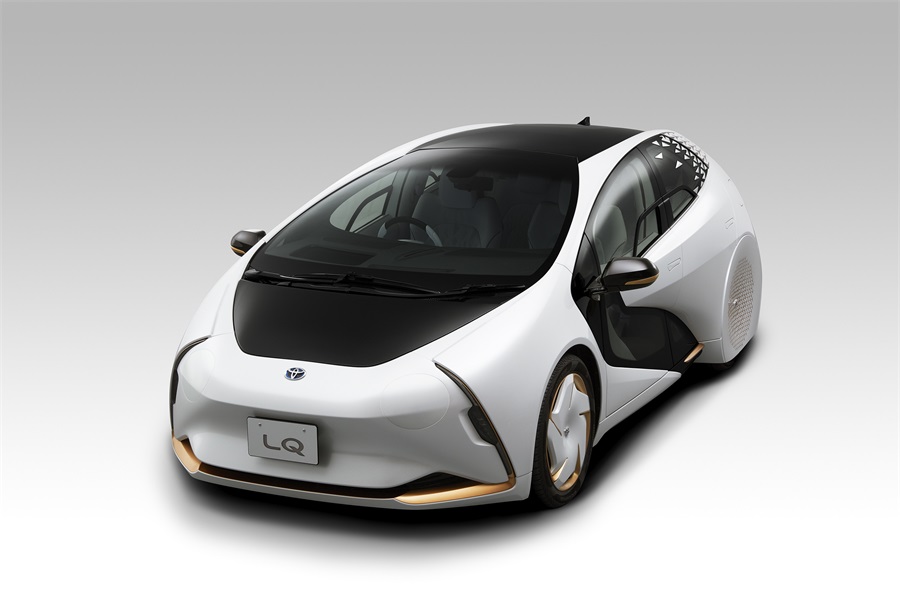Covestro provides sustainable solution for new concept car Toyota “LQ”
Joint development with Toyota Boshoku Corporation
- New polyurethane composite concept with kenaf fibers
- 30 percent lighter than conventional material

Lightweight materials will play an increasingly important role in future mobility, e.g. they will further extend the range of electric cars. Covestro as a provider of material solutions has a long-term experience in the global automotive industry. This also applies to the Japanese market, where the Innovation Center of Covestro has already developed many sustainable solutions, for instance components for low-density polyurethane foams.
Based on its innovation leadership, Covestro was chosen as partner by Toyota Boshoku Corporation, a car component manufacturer of the Japanese Toyota Group, for jointly developing a new polyurethane composite material for new electric concept car “LQ” developed by Toyota Motor Corporation. The material is based on a combination of Covestro's advanced Baypreg® F NF technology and Toyota Boshoku's expertise in using kenaf fibers, and offers a lightweight and sustainable solution. In the “LQ”, the new product is used in door trims, where it makes its world premiere in a car model of this manufacturer.
Kenaf is a member of the hibiscus family and is growing in regions such as South East Asia, Bangladesh, India and Africa. The fiber is obtained from bast fibers of the kenaf plant and has recently attracted increasing attention as a cost-effective raw material with good mechanical properties. In the automotive industry, the plant fiber is also attracting increasing interest as an alternative raw material.
Light and stiff
The kenaf fiber-reinforced polyurethane foam composite is characterized by a very low area density of less than 1 kg/m2 and high strength, making the door trim made of the fiber-reinforced kenaf polyurethane foam 30 percent lighter than that produced from conventional materials. The lighter the material, the further the car can travel on a single gas or battery charge.
The new composite material was developed in close cooperation between Toyota Boshoku and Covestro's recently renovated Japanese Innovation Center. "Our joint development makes an important contribution to the design of particularly lightweight and sustainable vehicles," says Hiroaki Ido, Head of Polyurethanes Application Development for Transportation at Covestro's Japanese Innovation Center. "It is also a good example of our company's focus on using alternative raw materials and establishing a circular economy."
About Covestro:
With 2019 sales of EUR 12.4 billion, Covestro is among the world’s largest polymer companies. Business activities are focused on the manufacture of high-tech polymer materials and the development of innovative solutions for products used in many areas of daily life. The main segments served are the automotive, construction, wood processing and furniture, and electrical and electronics industries. Other sectors include sports and leisure, cosmetics, health and the chemical industry itself. Covestro has 30 production sites worldwide and employs approximately 17,200 people (calculated as full-time equivalents) at the end of 2019.
Forward-looking statements
This news release may contain forward-looking statements based on current assumptions and forecasts made by Covestro AG. Various known and unknown risks, uncertainties and other factors could lead to material differences between the actual future results, financial situation, development or performance of the company and the estimates given here. These factors include those discussed in Covestro’s public reports which are available at www.covestro.com. The company assumes no liability whatsoever to update these forward-looking statements or to conform them to future events or developments.







